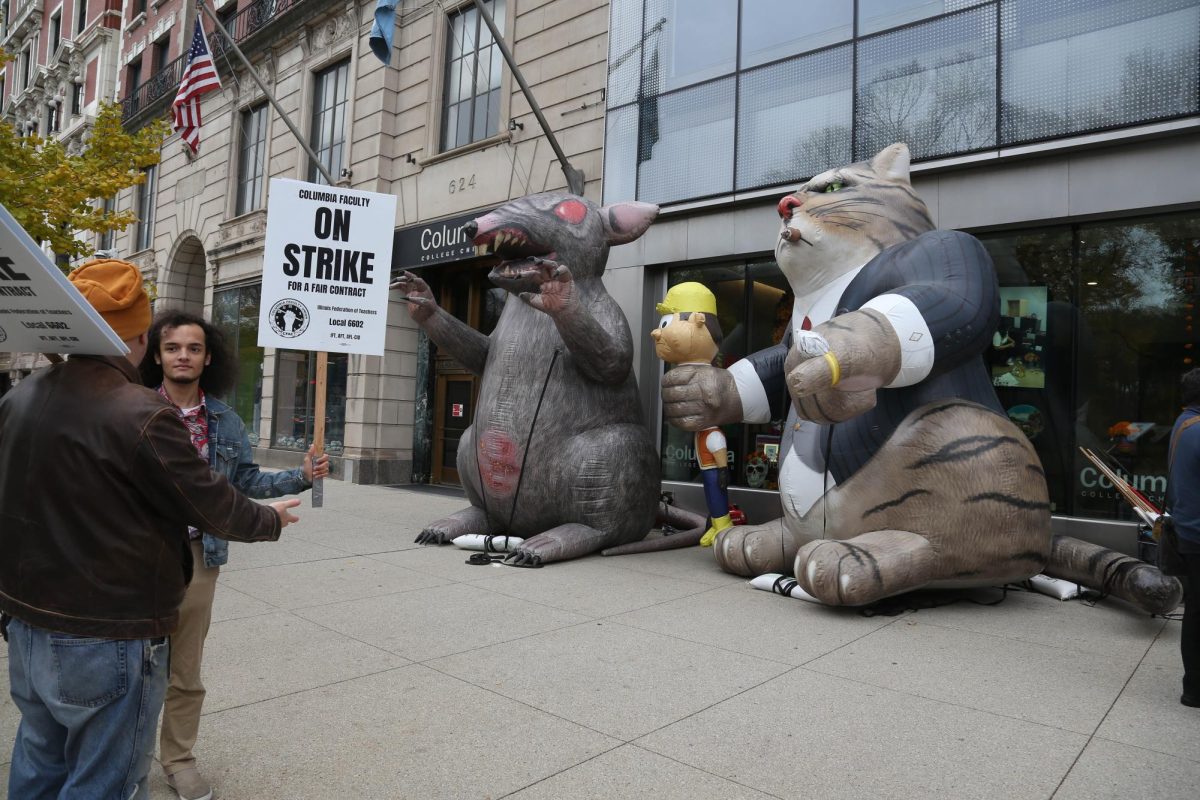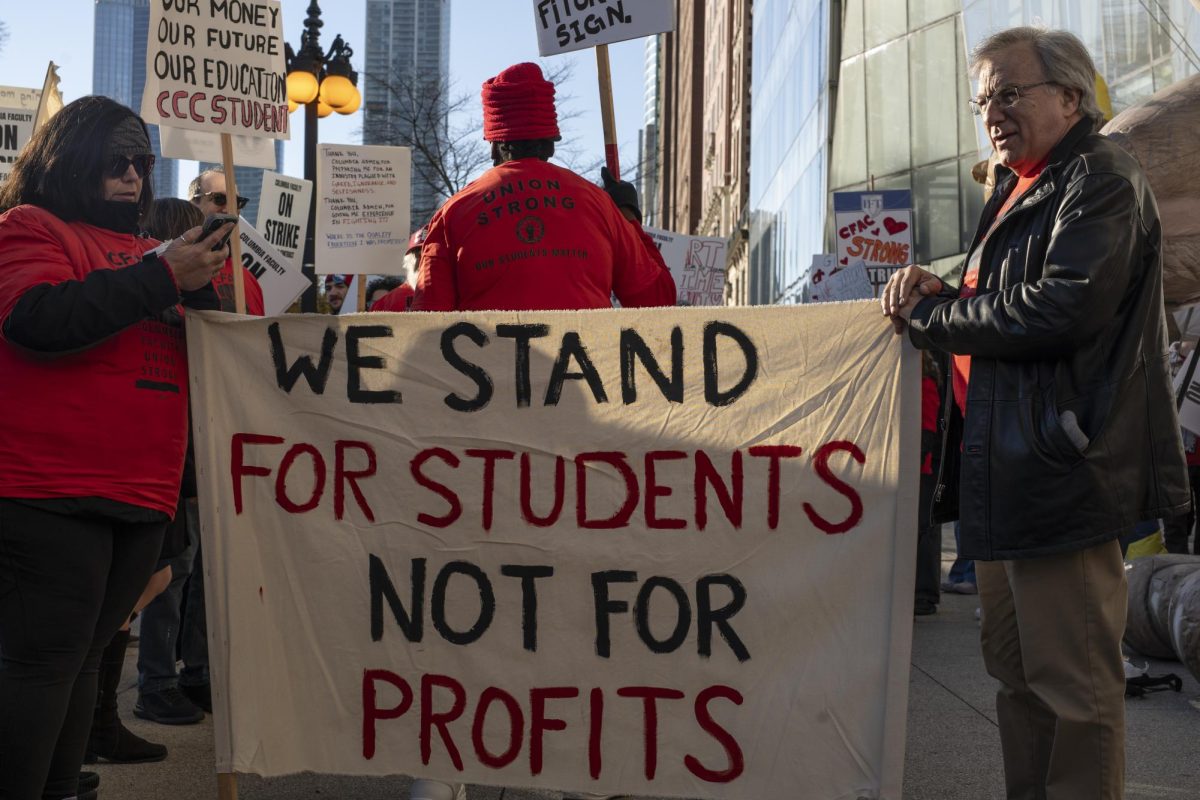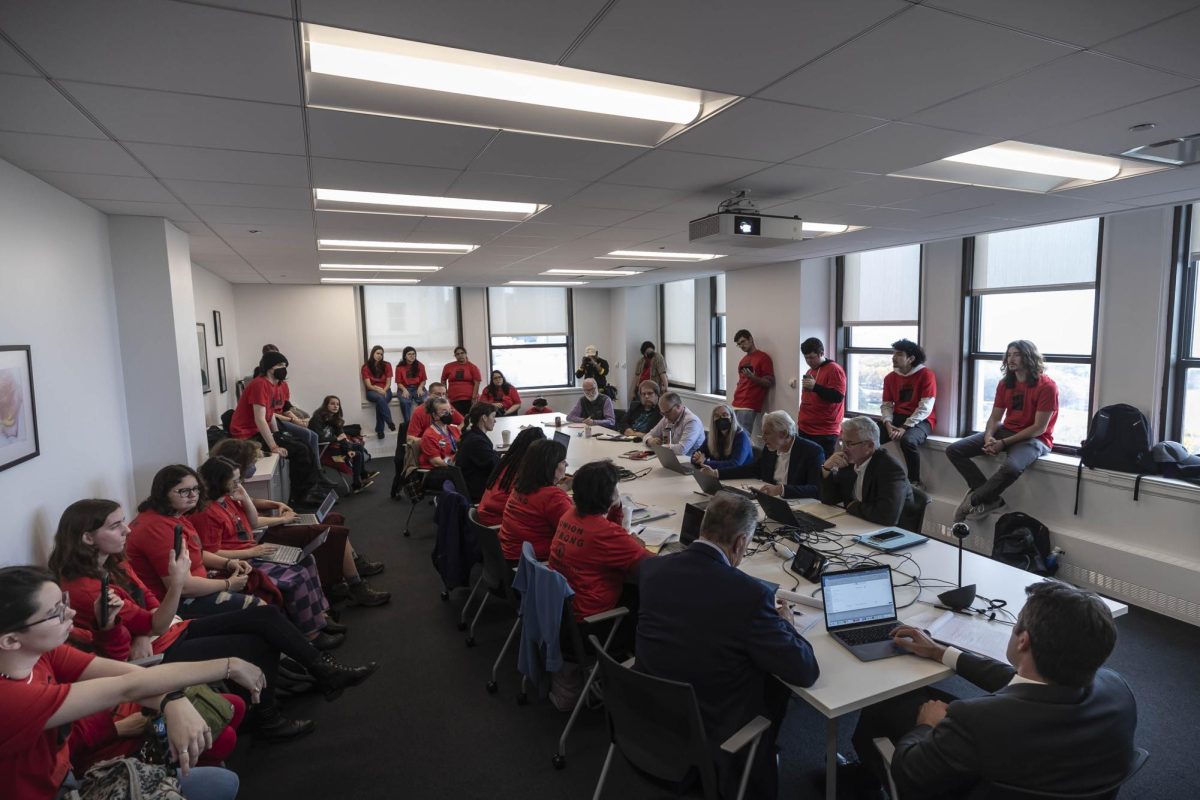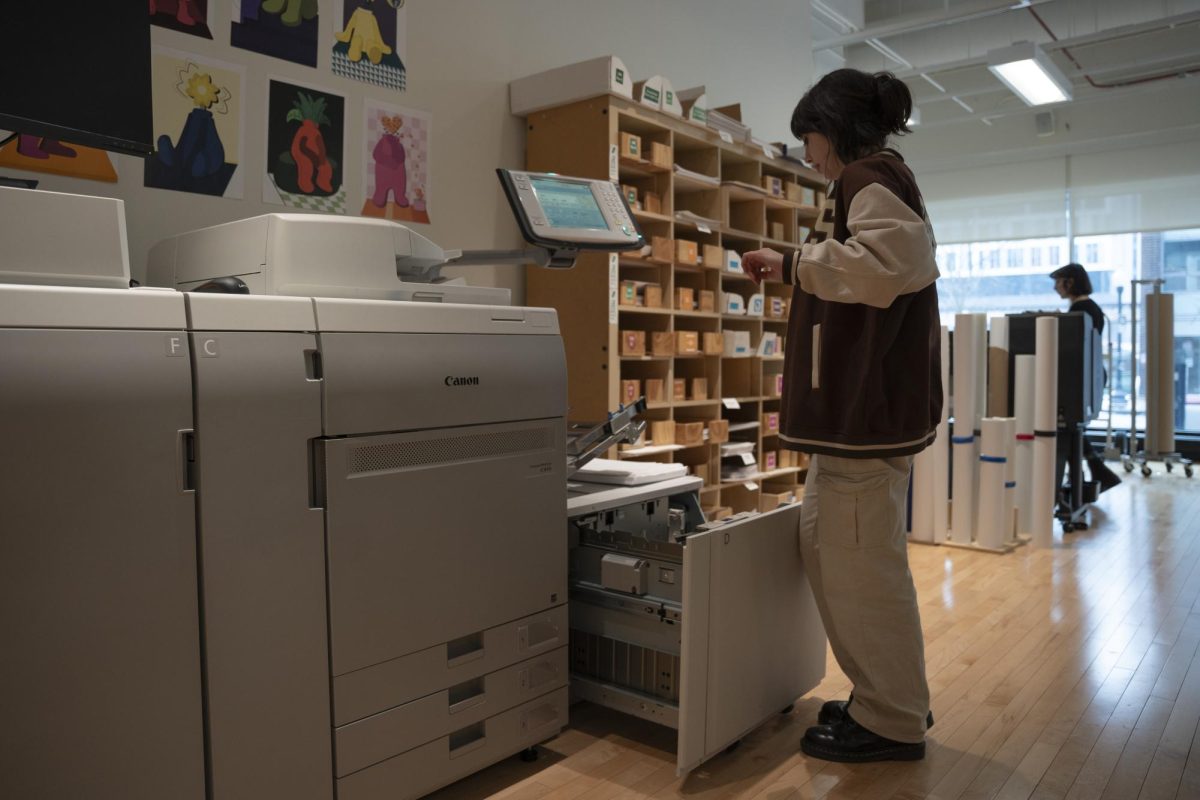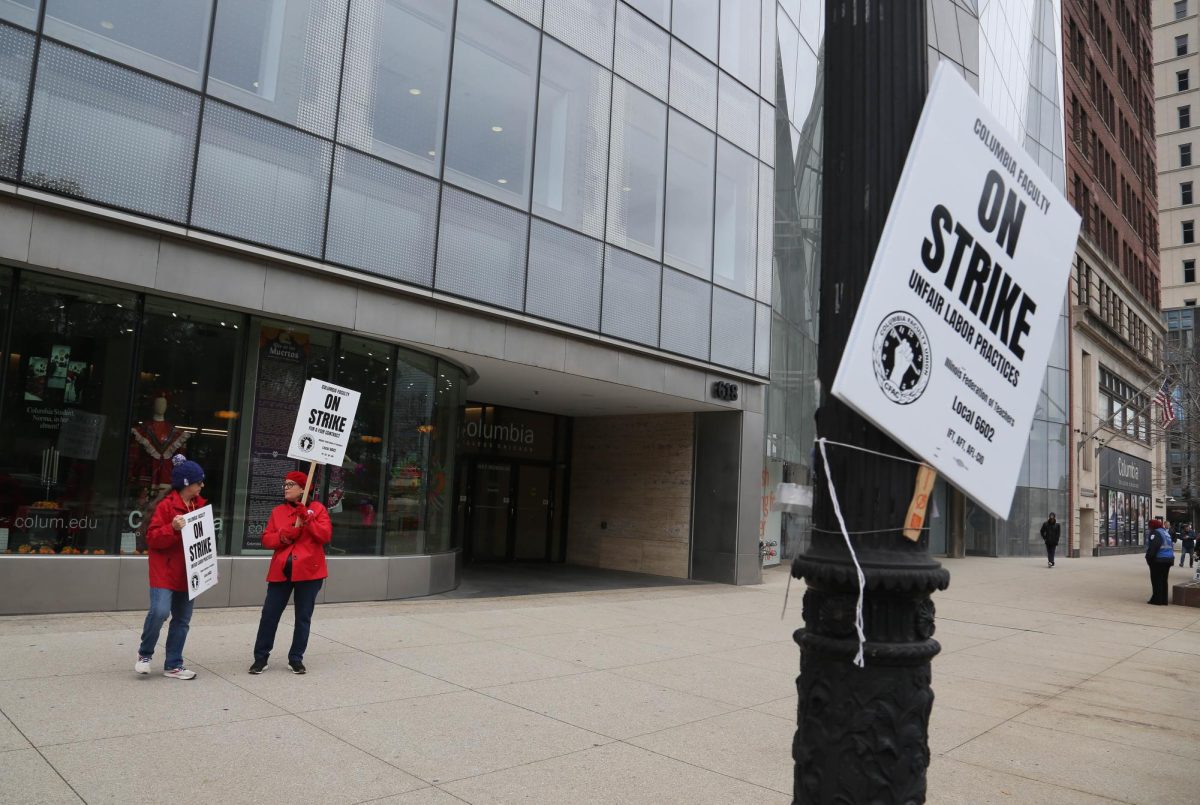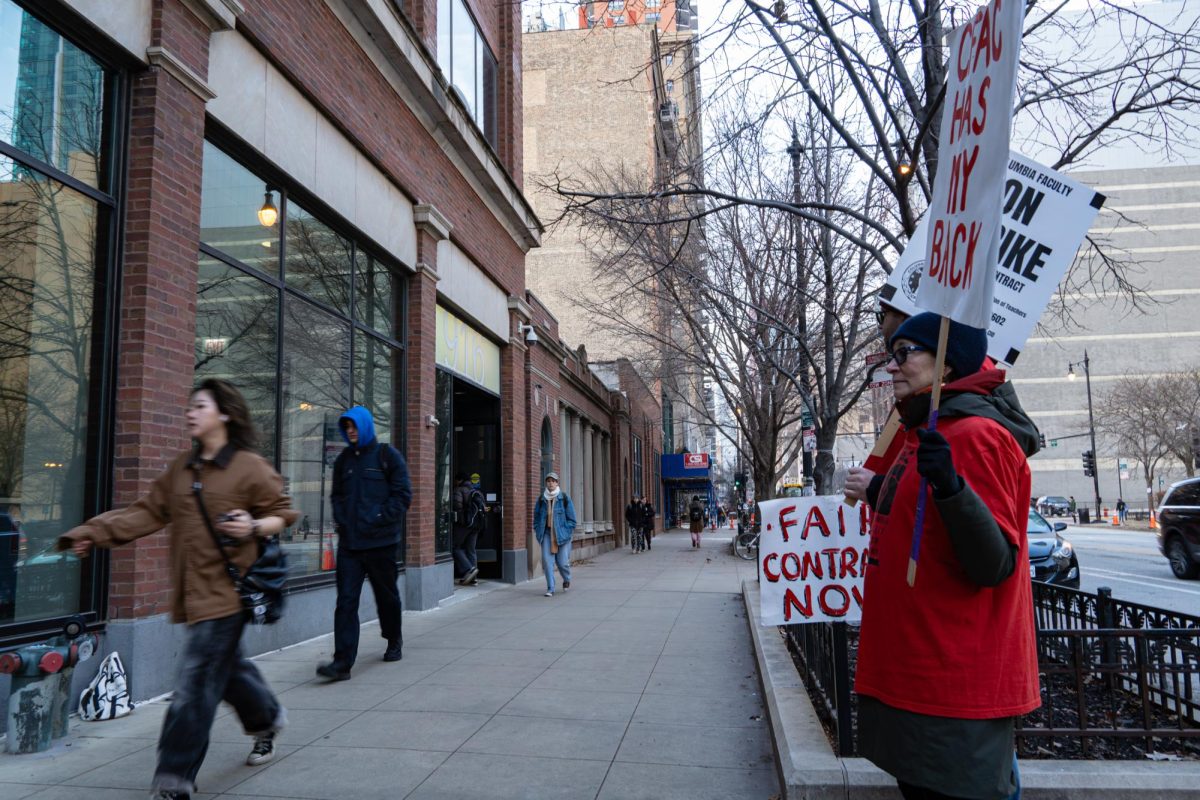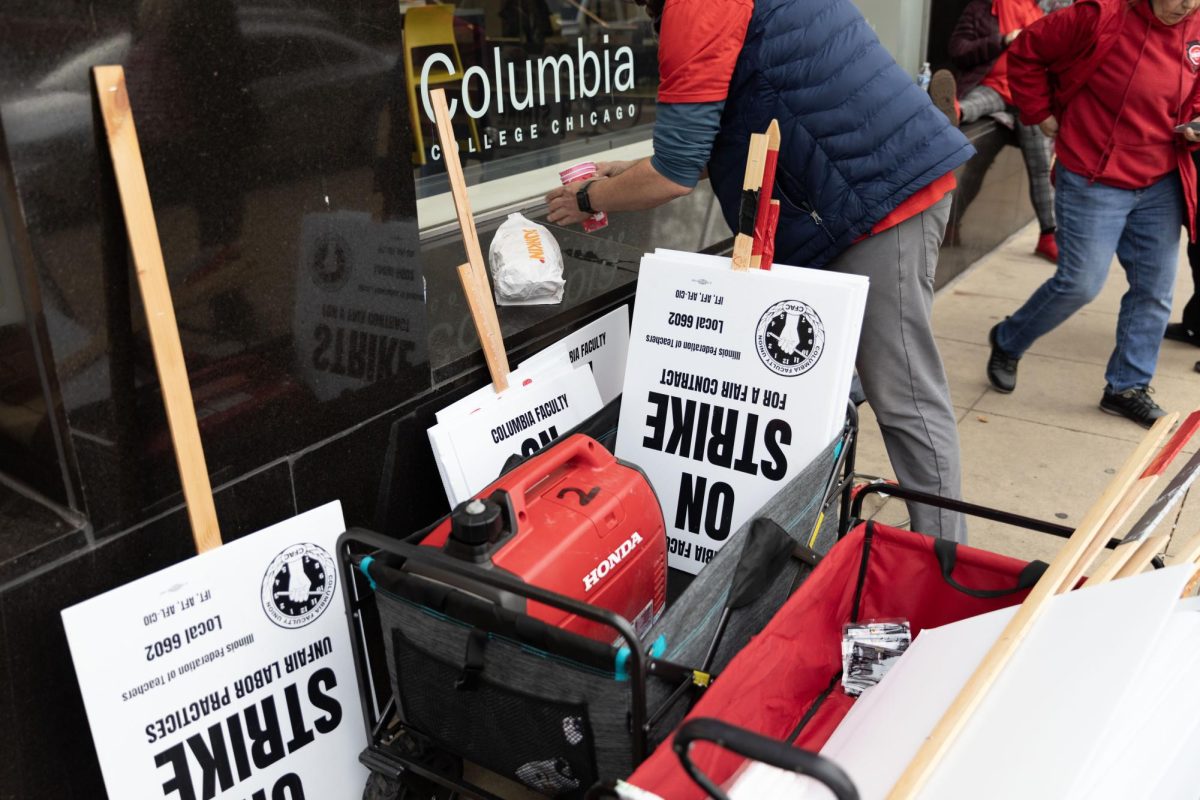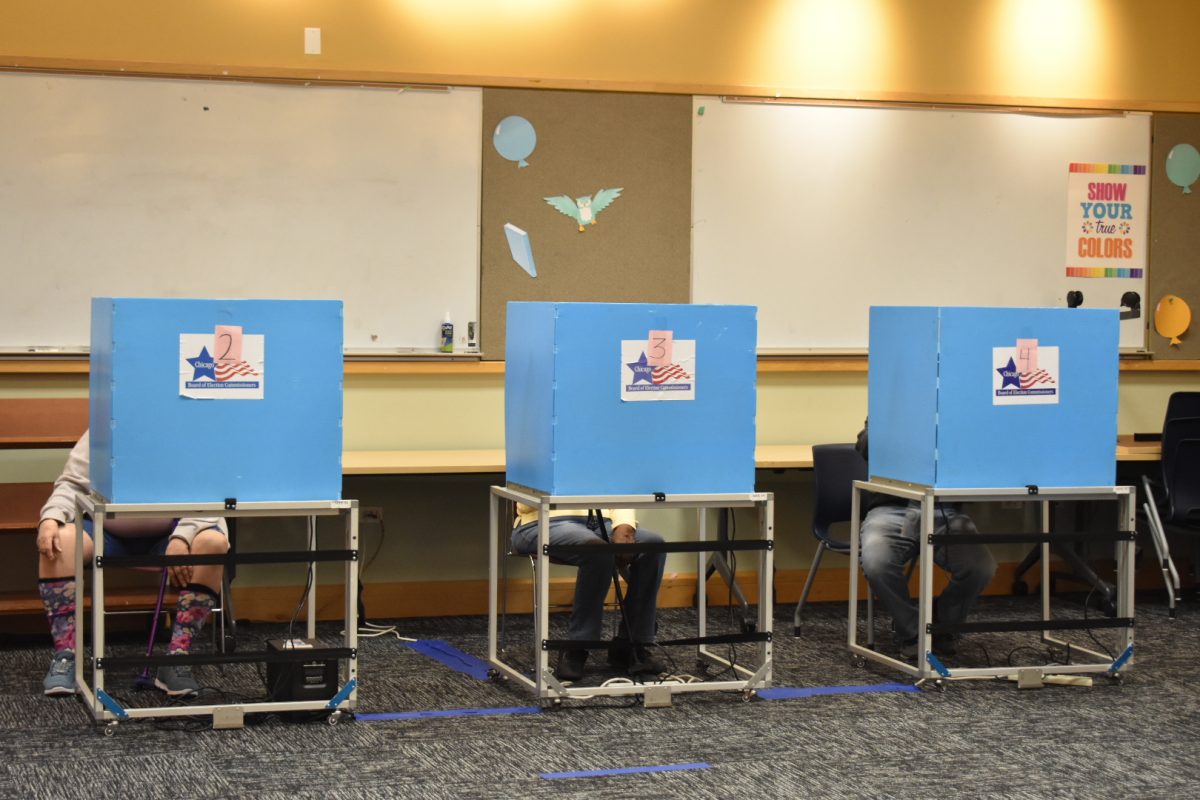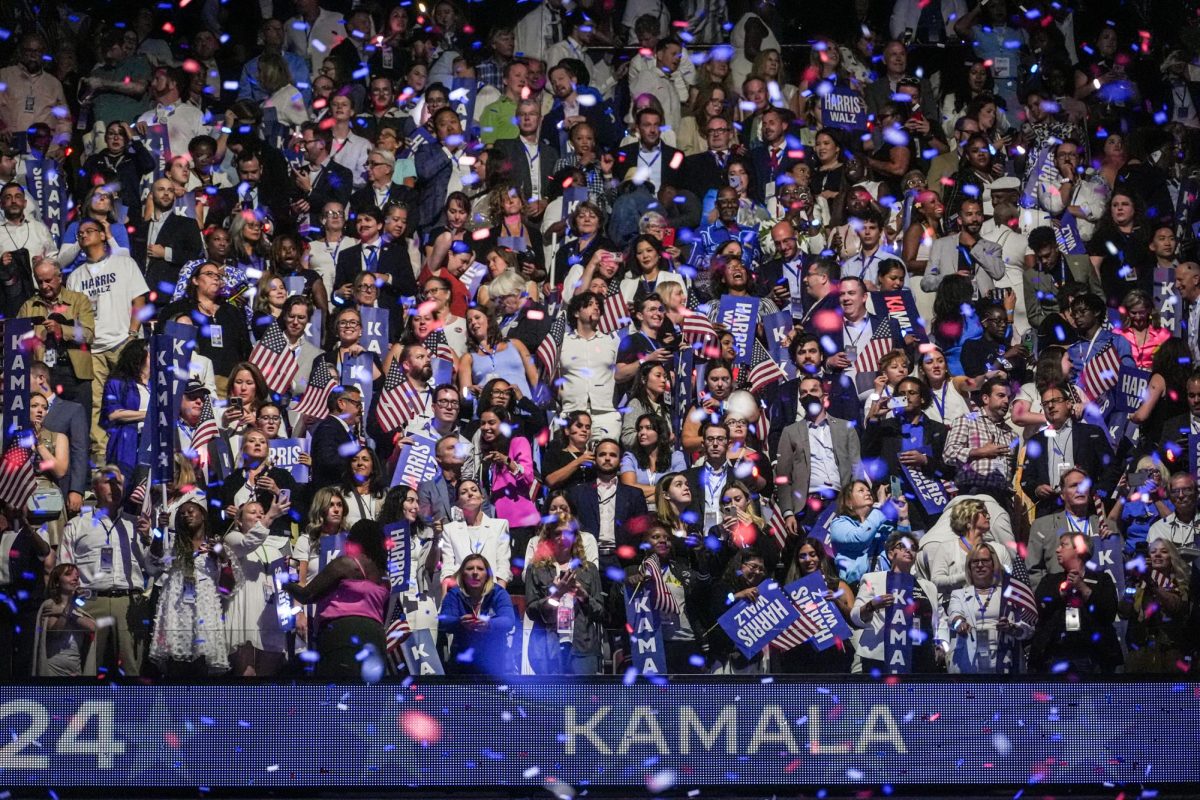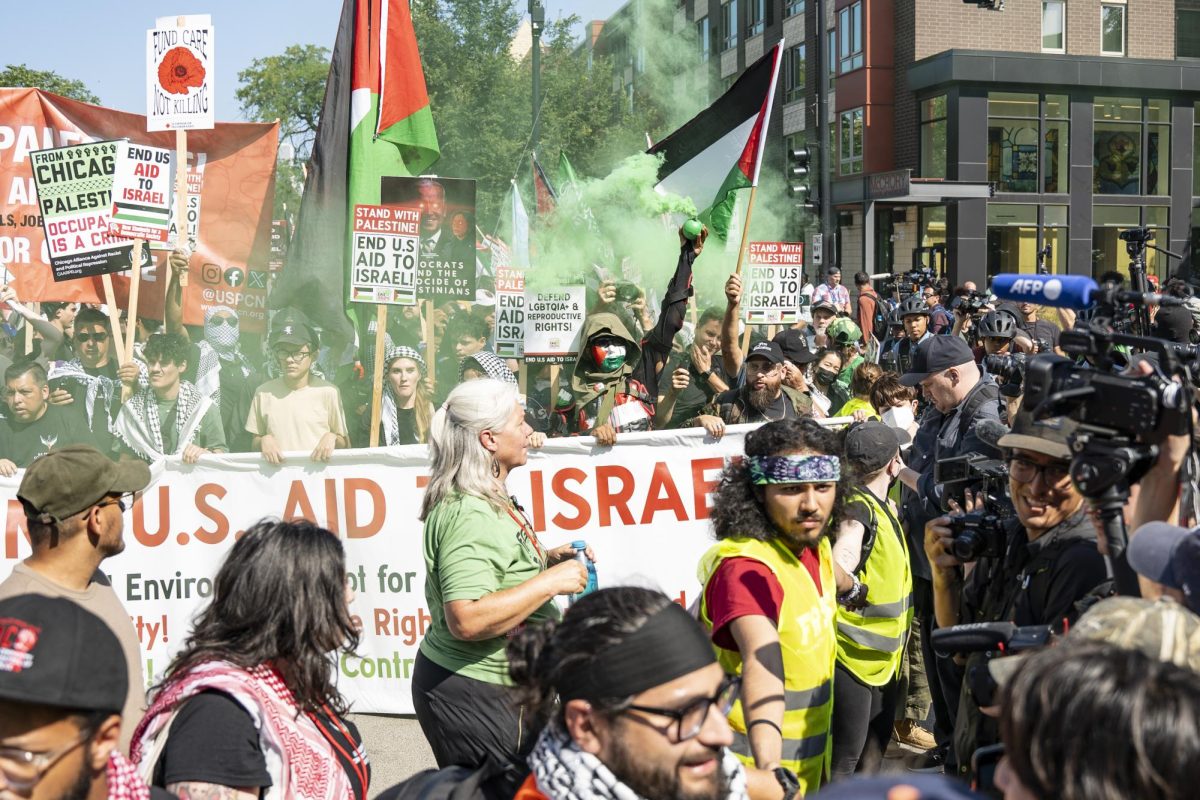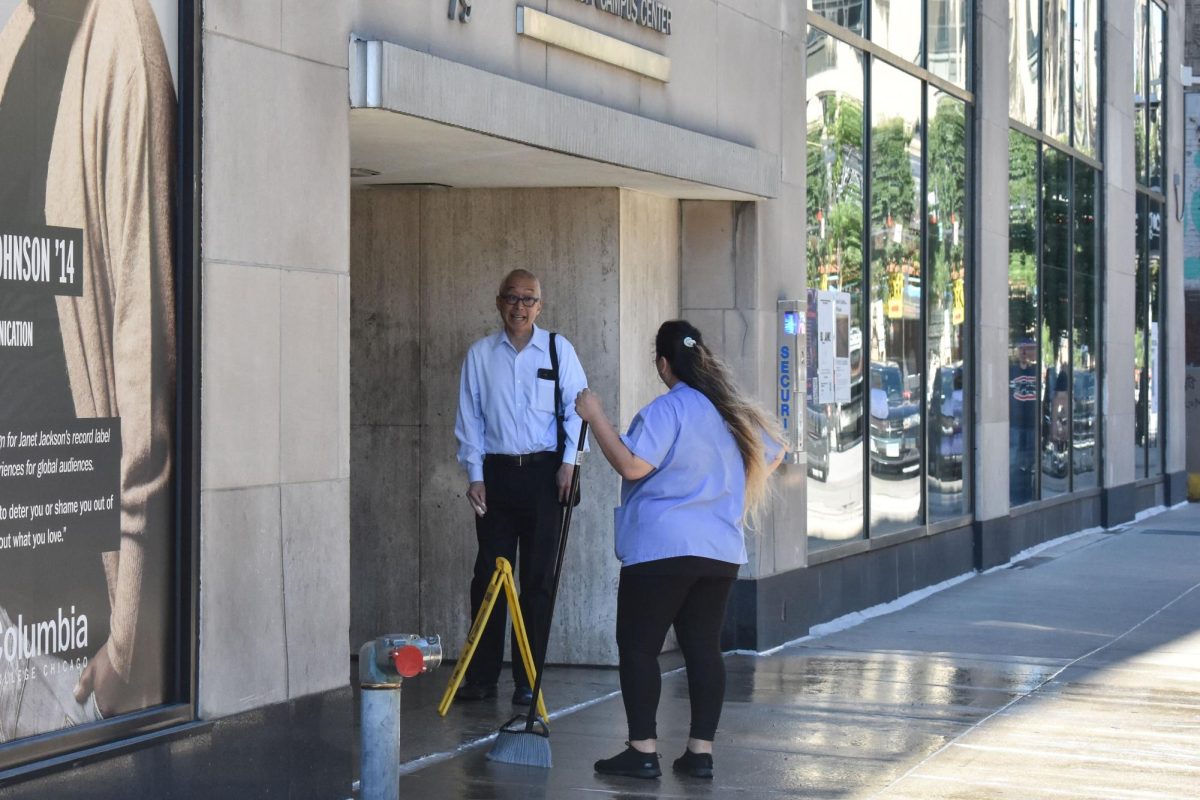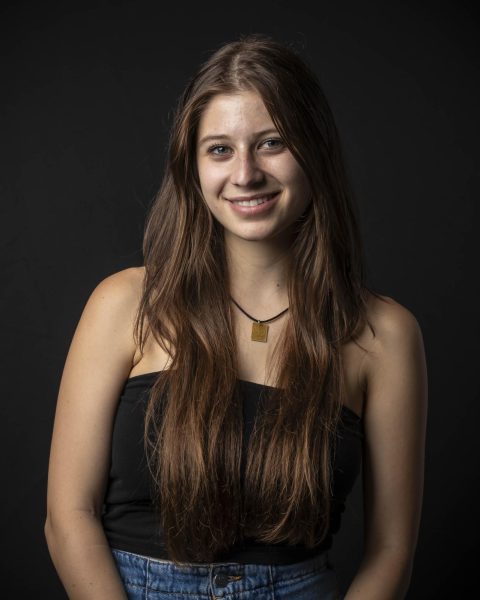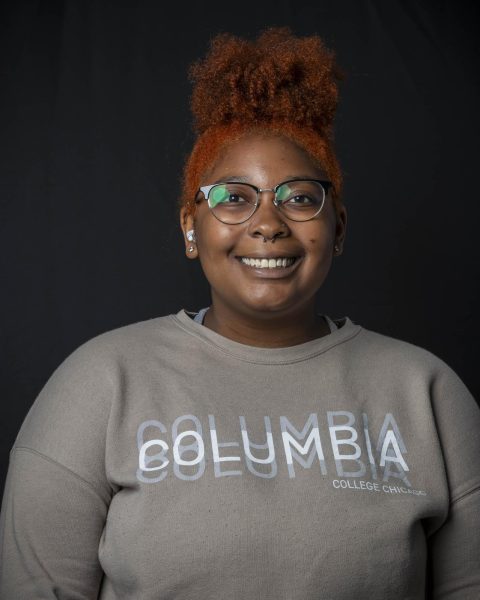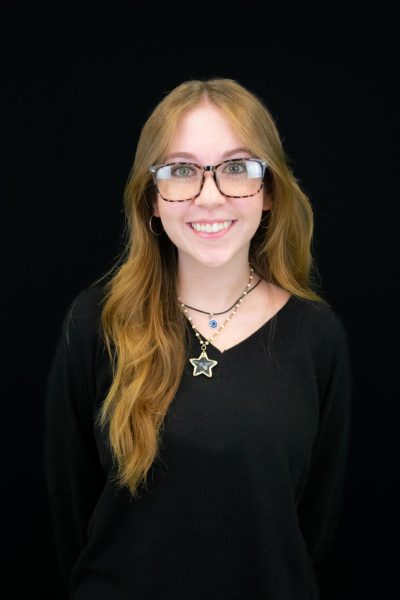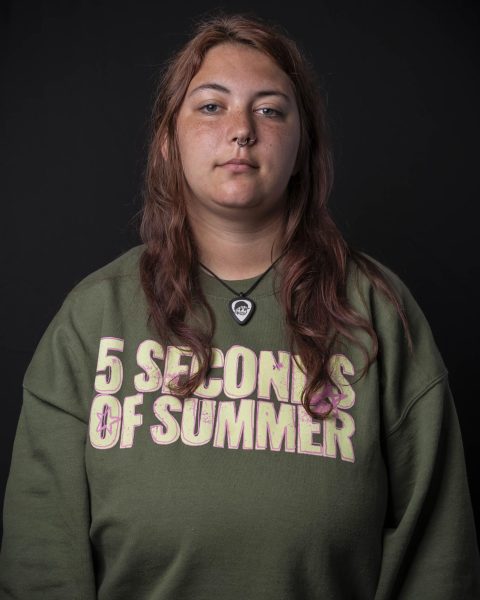Students returned this week from Thanksgiving break to finish the semester as the part-time union strike went into a fifth week, making it now the longest adjunct instructor strike in US history.
Classes that had been canceled were meeting again, but with new teachers and, in some cases, in a new format, as the college’s 221 full-time faculty tried to cover hundreds of courses taught by part-time instructors. The college had 584 part-time instructors at the start of the strike on Oct. 30.
At the 1104 S. Wabash Ave. building, which houses the Cinema and Television Arts Department, Columbia’s largest program, students expressed a mix of emotions about returning.
“It just feels like everything’s optional when it’s really not,” said Janet Delgado, a sophomore film and television major. “I just think it’s difficult because not all the teachers are 100% in, and I feel like the students aren’t either.”
Some full-time faculty are teaching double their normal course load of three classes per semester.
In an email to full-time faculty on Monday, Nov. 21, Faculty Senate President Madhurima Chakraborty said senate leadership met with the provost’s office last week to convey that the situation “is unequivocally unsustainable” for full-time faculty, particularly since they “have had so little to do with the discussions that have led us here.”
She also said that whatever work full-time faculty are doing over the next few weeks to help students finish the semester should not be a model for future semesters.
“We also clarified that full-time faculty members’ agreeing to cover classes should not be taken as an agreement with the college’s position, any more than our not picking up extra classes should be considered as an approval of CFAC’s demands,” she said, using the acronym for the Columbia Faculty Union. “This is not because we are neutral– we have too much at stake to be neutral– but because we are doing, in incredibly fraught, tense, and disempowering circumstances, what we consider to be in the students’ short- and long-term benefits.”
Students started to get Canvas notifications over the holiday weekend that their classes had been reassigned to different teachers.
Delgado’s part-time instructor for “Culture, Race & Media” was replaced by a full-time professor.
“She’s really nice, but it’s just a big change since I was used to the part-time faculty teacher,” Delgado said.
Delgado said she has concerns regarding the strike coming to an end in the near future.
“I want them to all be satisfied with the deals that they give them and without affecting the students as well,” Delgado said.
Nahomy Rodriguez, a first-year film and television major, is happy to be back in the classroom.
“Honestly, I’m happy that I’m back because I want to learn,” Rodriguez said. “That’s the reason why I came here.”
Rodriguez nonetheless is worried about part-time faculty members who have been replaced during the strike or who may not have classes to teach in the future.
“I just hope that those teachers who are part-time teachers are okay and they find a job,” Rodriguez said. “I just want to make sure that they’re okay.”
Rodriguez, who is new to Chicago, was expecting “a lot” from the school, but doesn’t know where her money is going.
“I paid for these classes, I paid for my next semester and I hope next semester gets better,” Rodriguez said, adding that they are “probably going to transfer.”
The union is striking over course cuts and other cost-cutting measures the college is implementing to close a $20 million deficit. It is not clear what its exact demands are at this point. As the strike started, the union called for the immediate removal of President and CEO Kwang-Wu Kim and Provost Marcella David, a tuition freeze and the creation of a DEI ombudsman position.
It also has since requested the restoration of courses that were cut from the spring course catalog. But how many appears to remain a sticking point, according to email communications from the college and union.
The college’s bargaining team and the union met throughout the holiday weekend but remain “unable to accept the union’s demand of a guarantee of employment to nearly all part-time faculty” among other demands, according to an email on Monday, Nov. 27 from Special Counsel Labor Relations Terence Smith and Chief of Staff Laurent Pernot.
“As a result, the union has signified that the strike will continue, even as the two teams have agreed to continue to actively seek an agreement,” Pernot and Smith said in the joint email to the Columbia community.
Madeline Francis, a first-year film and television major, said she’s “just so sick of it.”
“It’s exhausting,” Francis said. “It just seems like no one can agree on anything which just goes to show how childish it is.”
Francis said she cares about feelings and viewpoints of everyone involved, but said it seems “exaggerated now.”
“I want Columbia to be my place and my home, but right now it just seems corrupted,” Francis said.
Ava Logan, a first-year fine arts major, was worried about having a class with a new teacher.
“I’m concerned about the teachers being replaced by staff who don’t know where the class left off, or even where we started,” Logan said.
This story has been updated.


